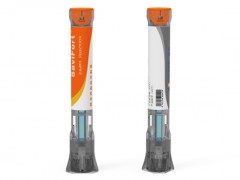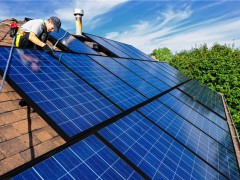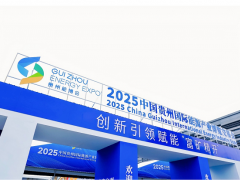據彭博社7月13日報道,國際貨幣基金組織(IMF)稱,沙特阿拉伯可能會利用石油收入盈余重建儲備,打破其在原油價格上漲時刺激支出的歷史做法。
IMF駐沙特代表團團長蒂姆?卡倫(timcallen)表示:“無論油價走向何方,預算中規定的支出路徑都將得到堅持,我認為這是正確的做法。堅持有針對性的支出可以幫助真正建立起近年來一直在減少的金融資產。”
據IMF估計,每桶75美元左右的原油價格僅略低于沙特阿拉伯平衡預算所需的價格。隨著全球經濟從疫情的影響中復蘇,油價可能進一步上漲。國際能源署(IEA)警告稱,除非沙特阿拉伯及其歐佩克+盟國提高產量,否則石油市場將繼續吃緊。
卡倫表示:"過去,沙特預算過程的弱點在于,隨著油價上漲,支出將增加,而當油價回升時,你就不得不做出艱難的決定。我們不認為順應周期性對經濟有幫助,因此,即使油價更高,堅持原來的支出計劃是完全正確的。”
沙特阿拉伯今年的支出為9900億里亞爾(2640億美元),而收入預計將上升至8490億里亞爾。由于這一赤字,以及向沙特主權財富基金的轉移,5月份該國的凈外國資產降至約10年來的最低水平。
由于油價下跌和新冠肺炎疫情的雙重沖擊,阿拉伯世界最大的經濟體在2020年大幅收縮。政府采取措施緩解財政影響,包括將增值稅提高兩倍、削減支出計劃和提高進口費用等。
盡管沙特王儲穆罕默德·本·薩勒曼(Mohammed bin Salman)表示,上調增值稅是為了應對新冠肺炎危機,未來幾年可能會降低稅率,但IMF不建議這么做。卡倫稱:“現在已經提高了增值稅稅率,重要的是保持目前的稅率不變,并不希望以順周期甚至反周期的方式來使用稅率。”
IMF還建議,政府可以為低收入家庭提供更有針對性的金融支持。一直在削減燃料補貼的沙特上周為國內汽油價格設定了上限,并表示將承擔高于該水平的價格負擔。
卡倫表示,政府應該利用一個名為“公民賬戶”(Citizens Account)的項目,為低收入家庭提供直接的財政支持,而不是強制設定油價上限。他補充道:“堅持一直在做的改革,不要逆轉它們。MF也在為沙特政府管理主權資產負債提供技術援助。”
王佳晶 摘譯自 彭博社
原文如下:
Higher Oil Income Will Boost Saudi Saving Not Spending, IMF Says
Saudi Arabia is likely to use surplus oil revenue to rebuild reserves, breaking with its historical practice of boosting spending when crude prices rise, according to the International Monetary Fund.
“The message that we very strongly got was that the expenditure path set out in the budget will be stuck to, regardless of where oil prices go to, which I think is the right thing to do,” Tim Callen, the IMF mission chief to the kingdom, said in an interview late Monday. Sticking to targeted spending “allows you then to really build the financial assets that have been run down in recent years.”
Crude prices around $75 a barrel are only slightly lower than what Saudi Arabia needs to balance the budget, according to IMF estimates. They may rise further as the global economy rebounds from the impact of the pandemic and the International Energy Agency warned on Tuesday that the oil market would remain tight unless Saudi Arabia and its OPEC+ allies boost production.
“In the past, the weakness of the Saudi budget process was as oil prices go up spending would go up, and when prices turn around you then have to make difficult decisions,” Callen said. “We don’t think that pro-cyclicality is helpful for the economy, so it’s exactly right to stick with the expenditure as it was set out, even if oil prices are higher.”
Saudi Arabia set spending this year at 990 billion riyals ($264 billion), while revenue is projected to rise to 849 billion riyals. As a result of that deficit, and transfers to the kingdom’s sovereign wealth fund, net foreign assets dropped to their lowest level in about 10 years in May.
The Arab world’s largest economy contracted sharply in 2020 due to the double shock of lower oil prices and the coronavirus pandemic. The government took measures to cushion the fiscal impact, tripling the value-added tax, cutting expenditure plans and raising import fees.
While Crown Prince Mohammed bin Salman has suggested the VAT hike was a response to Covid-19 and the rate could be reduced in the next few years, the IMF advises against it. “Having now raised the VAT rate, it is important that it stays where it is,” Callen said. “You don’t want to use tax rates in a pro-cyclical or even a counter-cyclical way.”
The IMF also suggested the government could afford to use more targeted financial support for low-income households. The kingdom, which has been reducing fuel subsidies, set an upper limit for the domestic cost of gasoline last week and said the state would shoulder the burden of prices above that level.
Rather than imposing a cap, Callen said the government should use a program called the Citizens Account to direct financial support to low-income households. “Stick with the reforms that you’ve been doing and don’t reverse them,” he said.
The IMF is also giving technical assistance to the Saudi government in managing its sovereign asset liability, Callen said.
免責聲明:本網轉載自其它媒體的文章,目的在于弘揚石化精神,傳遞更多石化信息,并不代表本網贊同其觀點和對其真實性負責,在此我們謹向原作者和原媒體致以敬意。如果您認為本站文章侵犯了您的版權,請與我們聯系,我們將第一時間刪除。







